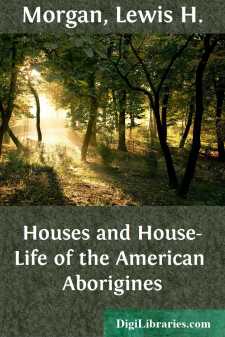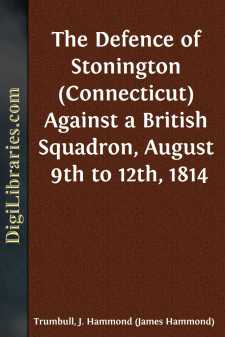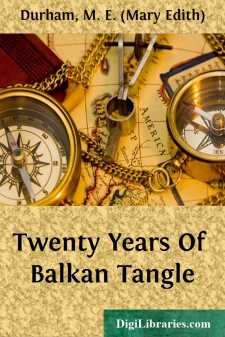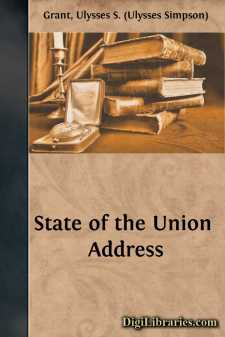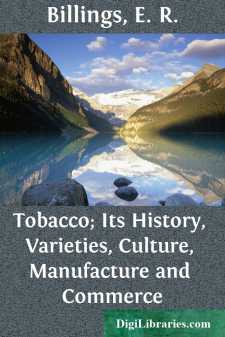History
- Africa 30
- Americas (North Central South West Indies) 50
- Ancient 68
- Asia 58
- Australia & New Zealand 8
- Canada 41
- Caribbean & West Indies 1
- Civilization 20
- Eastern Europe 12
- Europe 310
- Expeditions & Discoveries 60
- General 77
- Historical Geography 1
- Jewish 9
- Latin America 3
- Medieval 8
- Middle East 14
- Military 248
- Revolutionary 8
- Study & Teaching 5
- United States 353
- Western Europe 56
- World 13
History Books
Sort by:
by:
Lewis H. Morgan
PREFACE. The following work substantially formed the Fifth Part of the original manuscript of "Ancient Society," under the title "Growth of the Idea of House Architecture." As the manuscript exceeded the limits of a single volume, this portion (Part V) was removed, and having then no intention to publish it separately, the greater part of it found its way into print in detached...
more...
INTRODUCTORY NOTE. he repulse of a British squadron, at Stonington, by a few undisciplined volunteers, having only two effective guns, imperfectly protected by a low earth-work,—and this repulse accomplished without the loss of a single life,—was not the least glorious achievement of the War of 1812-14. The fiftieth anniversary of the action is close at hand. Few who witnessed,—only three or four...
more...
CHAPTER I THE FOUNDERS OF ACADIA The name Acadia, [Footnote: The origin of the name is uncertain. By some authorities it is supposed to be derived from the Micmac algaty, signifying a camp or settlement. Others have traced it to the Micmac akade, meaning a place where something abounds. Thus, Sunakade (Shunacadie, C. B.), the cranberry place; Seguboon-akade (Shubenacadie), the place of the potato, etc....
more...
John Adams John Adams was born on October 19 (old style), 1735, near Boston, Mass., in the portion of the town of Braintree which has since been incorporated as Quincy. He was fourth in descent from Henry Adams, who fled from persecution in Devonshire, England, and settled in Massachusetts about 1630. Another of his ancestors was John Adams, a founder of the Plymouth Colony in 1620. Entered Harvard...
more...
TWENTY YEARS OF BALKAN TANGLE CHAPTER ONE PICKING UP THE THREADS It was in Cetinje in August, 1900, that I first picked up a thread of the Balkan tangle, little thinking how deeply enmeshed I should later become, and still less how this tangle would ultimately affect the whole world. Chance, or the Fates, took me Near Eastward. Completely exhausted by constant attendance on an invalid relative, the...
more...
To the Senate and House of Representatives: In coming before you for the first time as Chief Magistrate of this great nation, it is with gratitude to the Giver of All Good for the many benefits we enjoy. We are blessed with peace at home, and are without entangling alliances abroad to forebode trouble; with a territory unsurpassed in fertility, of an area equal to the abundant support of 500,000,000...
more...
by:
Charles Morris
Far over the eastern half of Europe extends a vast and mighty plain, spreading thousands of miles to the north and south, to the east and west, in the north a land of forests, in the south and east a region of treeless levels. Here stretches the Black Land, whose deep dark soil is fit for endless harvests; here are the arable steppes, a vast fertile prairie land, and here again the barren steppes, fit...
more...
CHAPTER XIII THE MILITARY DESPOTISM OF NICHOLAS I. 1. MILITARY SERVICE AS A MEANS OF DE-JUDAIZATION The era of Nicholas I. was typically inaugurated by the bloody suppression of the Decembrists and their constitutional demands, [1] proving as it subsequently did one continuous triumph of military despotism over the liberal movements of the age. As for the emancipation of the Jews, it was entirely...
more...
by:
E. R. Billings
THE TOBACCO PLANT. Botanical Description — Ancient Plant-Bed — Description of the Leaves — Color of Leaves — Blossoms — The Capsules and Seed — Selection for Seed — Suckers — Nicotine Qualities — Medicinal Properties — Improvement in Plants. CHAPTER TOBACCO. ITS DISCOVERY. Early Use — Origin of its Name — Early Snuff-Taking — Tobacco in Mexico — Comparative Qualities of...
more...
by:
George Whale
INTRODUCTION Lighter-than-air craft consist of three distinct types: Airships, which are by far the most important, Free Balloons, and Kite Balloons, which are attached to the ground or to a ship by a cable. They derive their appellation from the fact that when charged with hydrogen, or some other form of gas, they are lighter than the air which they displace. Of these three types the free balloon is...
more...


